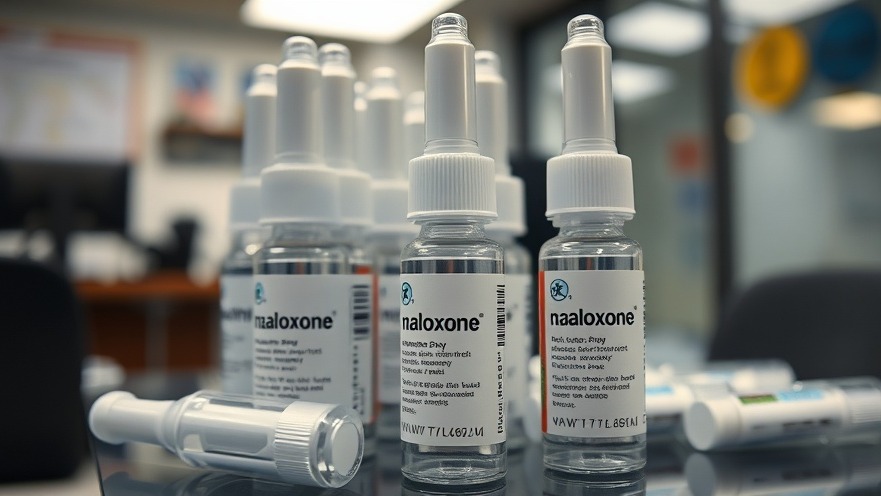
Combatting the Opioid Crisis on Campuses
In a proactive move to ensure student safety, Naloxone Texas is spearheading an initiative to equip every college campus in the state with naloxone, a critical medication that can reverse the effects of opioid overdoses. The aim is clear: during an escalating opioid epidemic, particularly involving fentanyl—a substance that has tragically become the leading cause of death for individuals aged 18 to 45—effective solutions are desperately needed.
Understanding the Urgency of Naloxone Access
Dr. Tara Karns-Wright, the director of Naloxone Texas and an assistant professor at the University of Texas at San Antonio (UTSA), emphasizes that while educational institutions from K-12 are commencing harm reduction strategies, higher education environments are lagging behind. "It’s so important for college students because we know that fentanyl is actually the leading cause of death for individuals ages 18 to 45. And so that encapsulates that age group," stated Karns-Wright. This underscores the stark reality that parties featuring drugs like Xanax or Adderall could be unknowingly tainted with potent opioids, posing lethal risks to unsuspecting students.
Personal Stories Reflecting the Crisis
Many students express the deep impact fentanyl has had on their lives and circles. Joaquin Ventimilla, a UTSA student, reflects, "It was really tragic. It took time for people to get back into their daily lives, and it really affected a lot of people personally." This kind of testimonial highlights the urgent demand for ensuring naloxone’s presence on campuses, as peer experiences lend authenticity and an emotional connect to the statistics surrounding overdoses.
Awareness and Education Through Engagement
During demonstrations about naloxone, students like Rida Hussiaw and Yoalli Echeverria voiced their surprise and concern that naloxone is not already a standard presence on college campuses throughout Texas. "I think this is the best place to have them for sure," said Hussiaw, echoing a sentiment that safety measures should evolve with the alarming trends seen in drug usage among youths.
Free Naloxone Access and Training Initiatives
Naloxone Texas is actively collaborating with colleges to provide free access to this life-saving drug and the necessary training to use it. Their outreach efforts encourage educational institutions to contact them via their website for assistance, bridging the critical gap between awareness and actionable steps to protect the student population.
Conclusion: A Call for Community Action
This campaign is not just about providing a medication; it’s about saving lives within local communities, emphasizing the role of education, empathy, and proactive strategies. As expectancy grows around initiatives focusing on public health and student safety, partnering with community organizations can vastly improve the resources available for combating the opioid crisis. It's time for educational institutions to embrace this vital aspect of student health and well-being.
 Add Element
Add Element  Add Row
Add Row 



Write A Comment